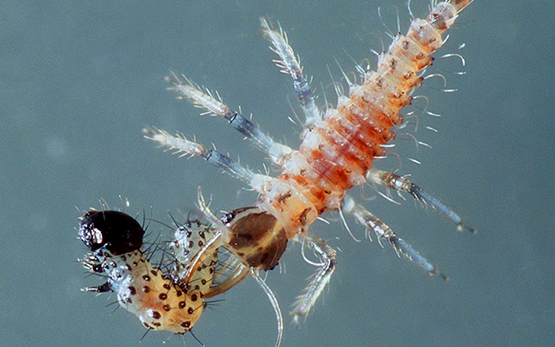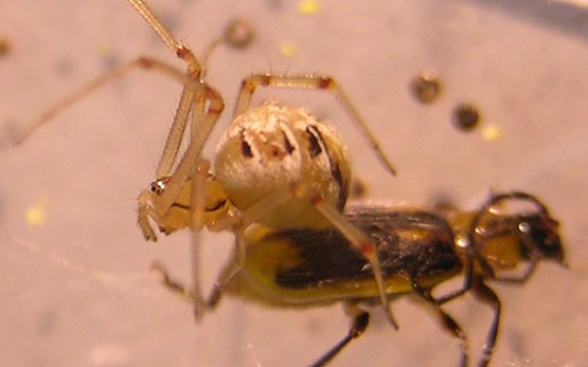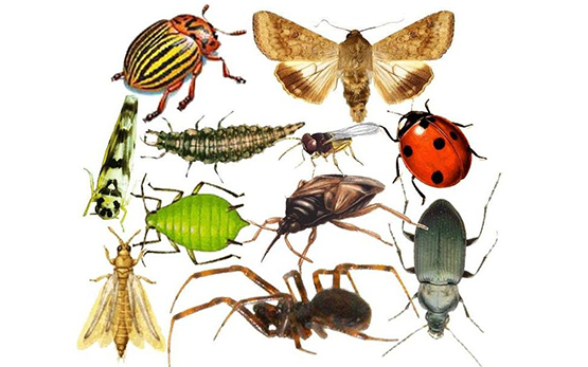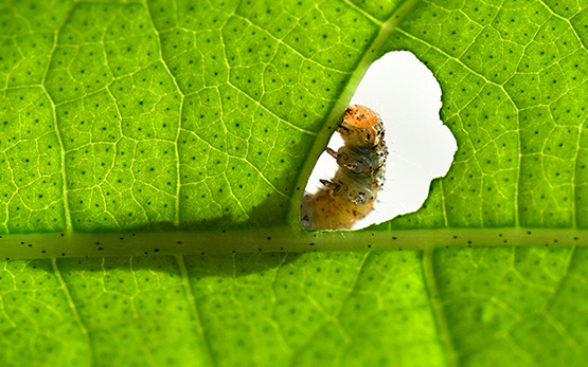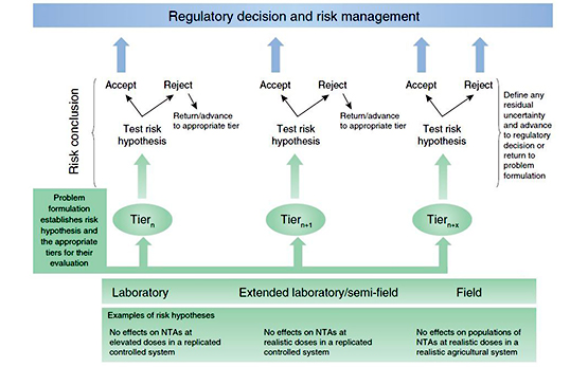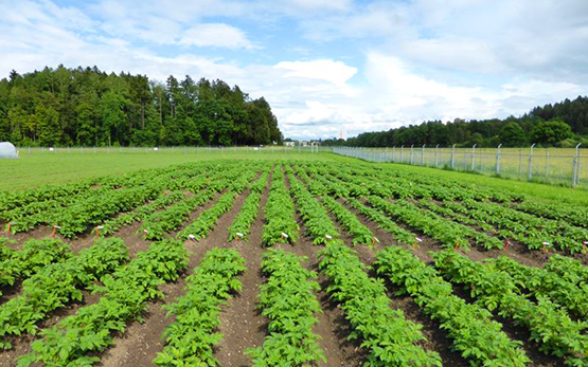Genetically modified plants are grown on ever-increasing acreage worldwide. We investigate the potential benefits for agriculture as well as the ecological risks. Our research focuses mainly on the effects for non-target organisms.
Genetically modified (GM) plants, especially those with herbicide tolerance and/or insect resistance, are being grown on more than 10% of the global arable acreage. Although no GM plants are currently grown commercially in Switzerland, future products with new traits might also be of interest for Swiss agriculture. In addition, it is expected that the international trade in agricultural products will in future bring more components of GM plants into Switzerland.
The cultivation of GM plants can have consequences for agricultural production systems as well as for the environment: Products of genetic engineering, the genetically modified plants themselves, and changes in the production system could potentially lead to undesired effects. Changes in the cultivation system, however - e.g. a reduction in chemical pesticides or tillage - can also be beneficial for the environment.
The Biosafety Research Group has dealt with the benefits and risks of gene technology since the first marketing of GM plants in 1996. Our research focuses on potential effects on biodiversity and ecological processes, such as biological pest control, pollination and decomposition. Experiments are conducted under controlled conditions in the laboratory and greenhouse. Studies on the interaction of GM plants with the environment are conducted in the convertible greenhouse or in the field.
The findings obtained through this research help us improve the risk assessment and environmental monitoring of GM plants, as well as contributing to a more evidence-based political debate. Our experience is also used towards advising policy-makers and regulatory authorities.


